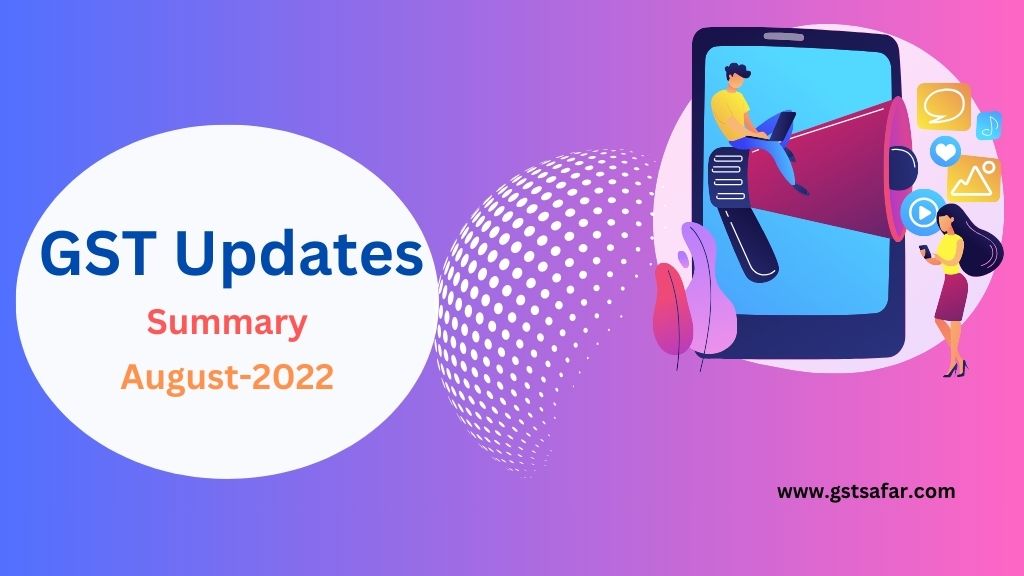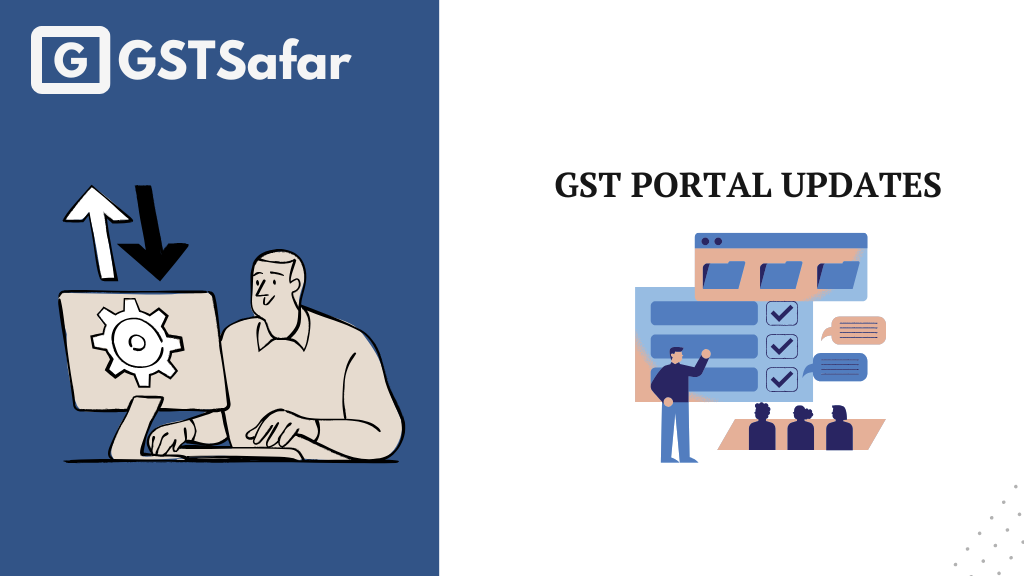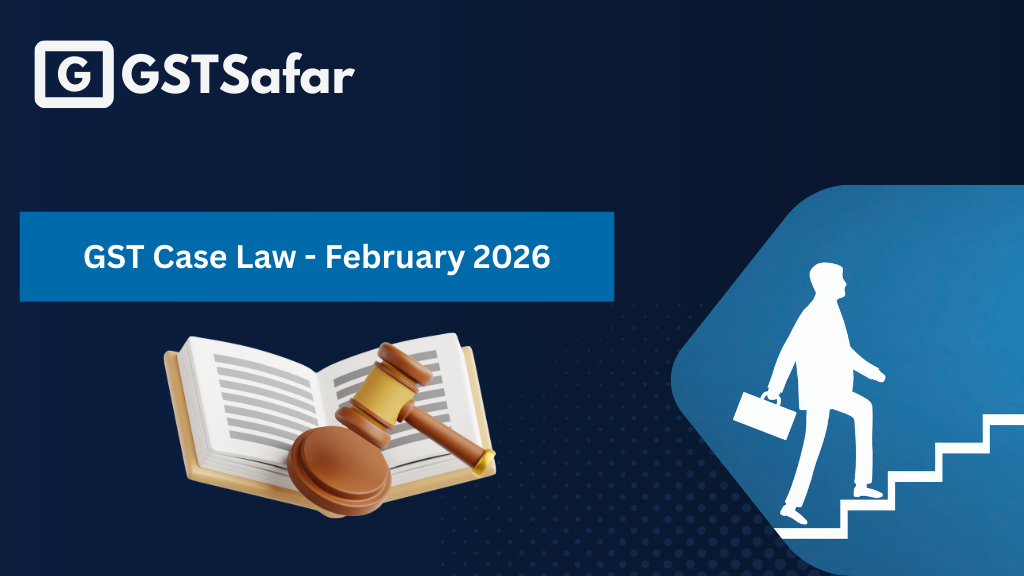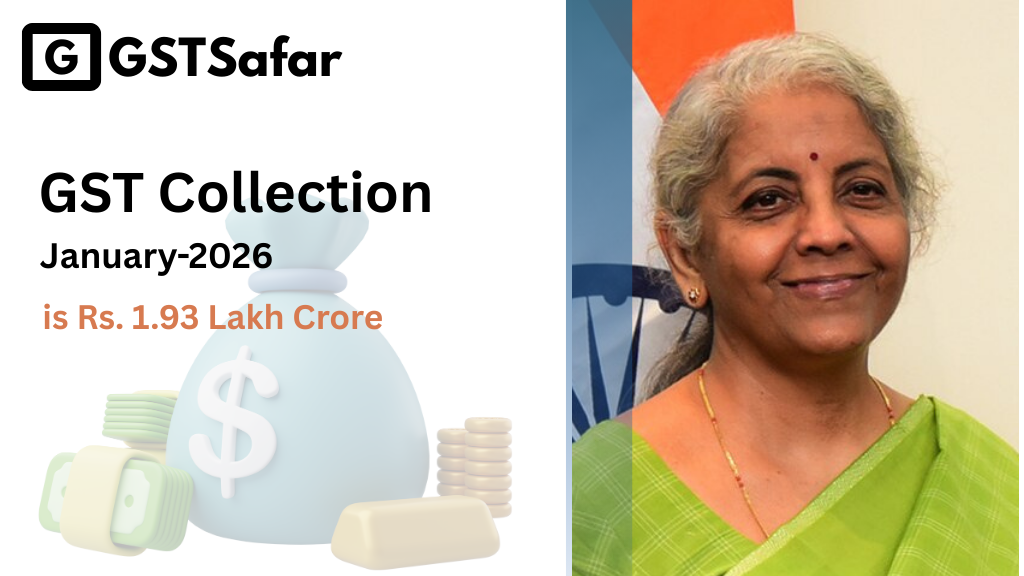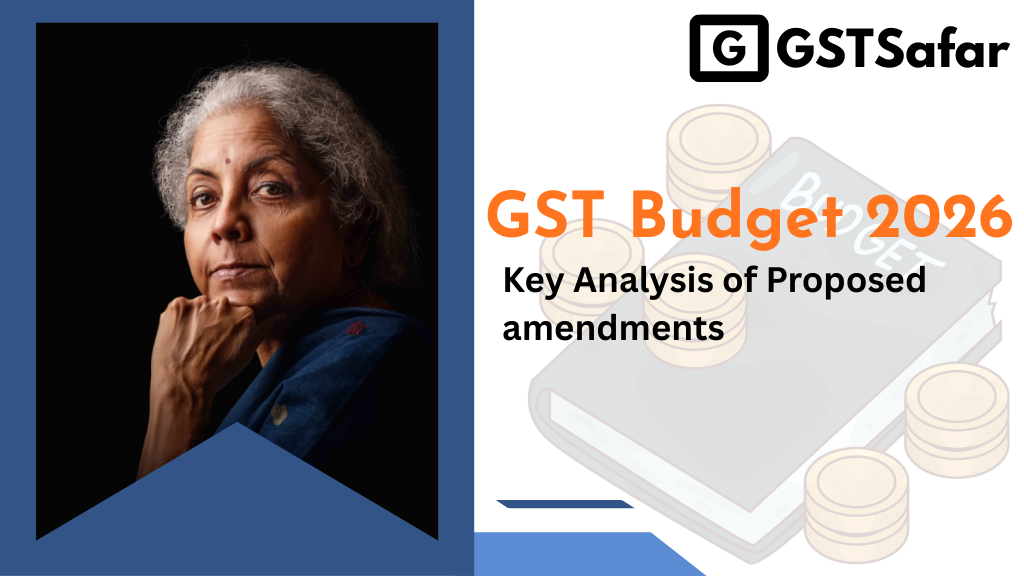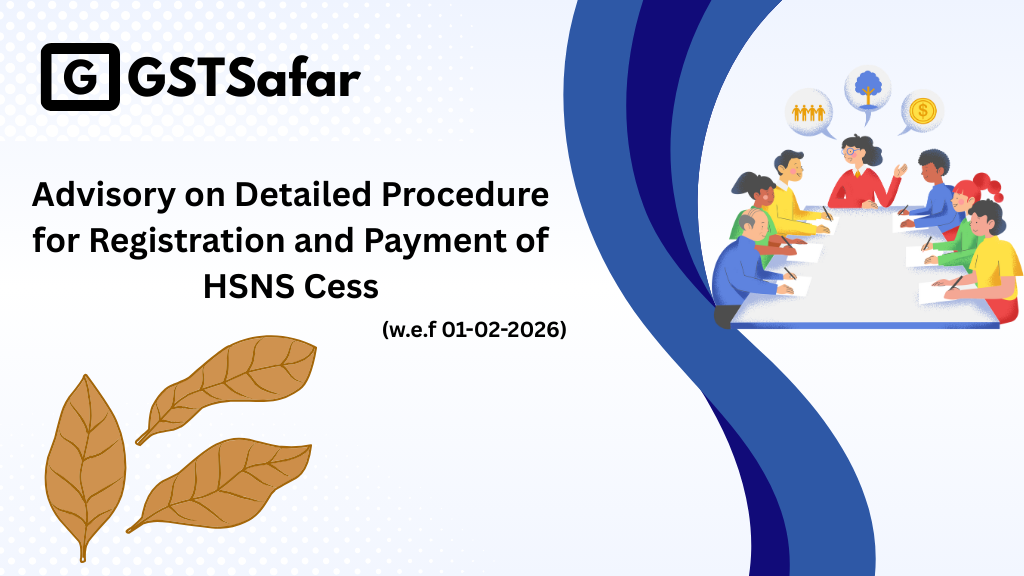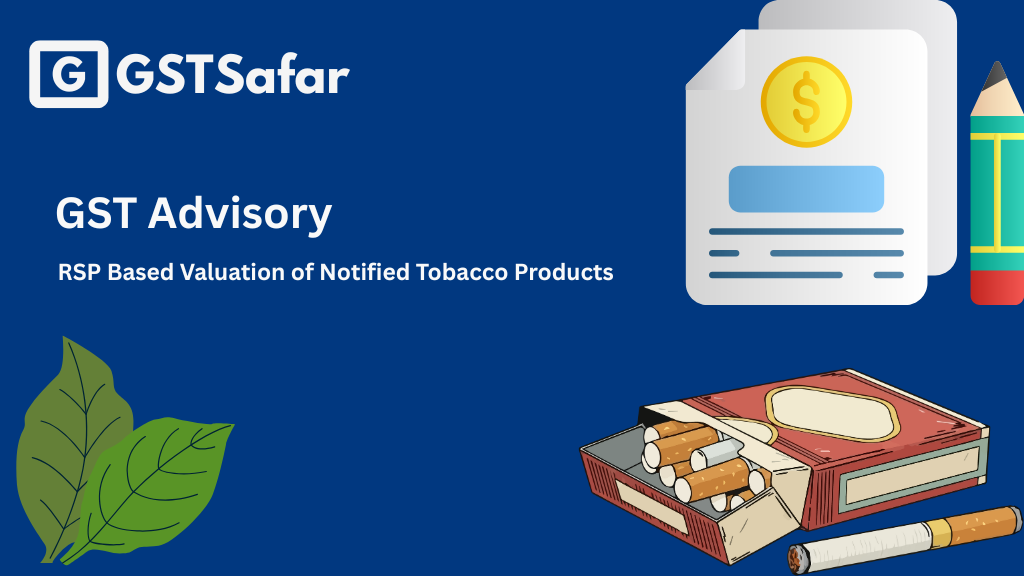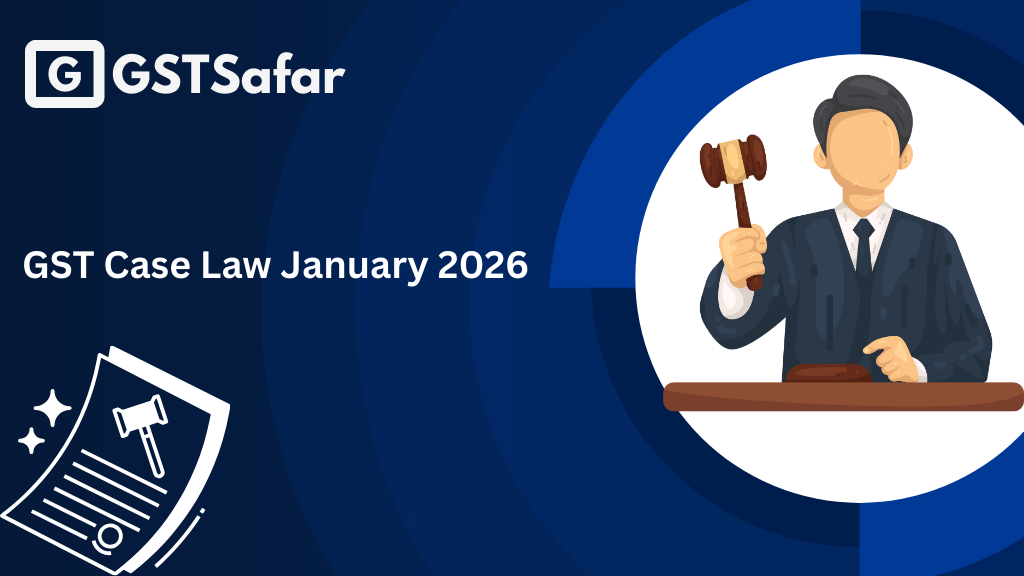This articles covers the latest gst updates August-2022. It contains all the Notifications and Circulars issued in August-2022 which covers all GST Updates August-2022. All these amendments have been presented hear topic wise and reference of relevant latest gst notifications and latest gst circulars have been given at bottom of each topic. As well as, I have given our own analysis wherever it is necessary
Table of Contents
ToggleGST Summary on Circular No.177/09/2022 dated 03-08-2022.| GST Updates Summary August-2022
| SR No | Heading | Summary |
| 1 | Ice Cream Parlors’ GST Transition: 5% to 18% Rate | With effect from 06-10-2021 Ice Cream parlours need to pay 18% GST with ITC. Past cases where they paid 5% GST without ITC won’t require them to pay more, but no refunds will be given for extra GST paid earlier. |
| 2 | GST Exemption for Educational Institution Fees: Entrance, Eligibility, and Migration | Educational institutions don’t have to pay GST on fees they charge for entrance exams, eligibility certificates for admission, or migration certificates for students leaving the institution |
| 3 | GST Change: Cotton Storage Now Taxed | Before July 18, 2022, services related to storing or warehousing cotton in baled or ginned form were exempt from GST under entry 24 B of Notification No. 12/2017-Central Tax (Rate). This included raw cotton fibers like cotton, flax, and jute. However, after July 18, 2022, this exemption was removed, and GST is now applicable to these services. |
| 4 | GST Exemption for Transit Cargo to Nepal and Bhutan | GST exemption for transit cargo to/from Nepal and Bhutan, starting from September 29, 2017, includes transporting empty containers back after deliveries. Regulations ensure proper tracking to confirm that the returning empty containers are the same ones used for deliveries in Nepal or Bhutan. |
| 5 | GST Exemption Criteria for Government Services | The services provided by Central and State Governments, Union Territories, and local authorities for functions listed in the Constitution are exempt from GST. However, if these services are procured by entities like the Indian Army or government departments not involved in such functions, they don’t qualify for this exemption and are subject to GST. |
| 6 | GST Rate for Advertisement Space in Souvenir Books | The sale of advertisement space in souvenir books by institutions or organizations falls under the 5% GST rate as per entry 21 of notification No. 11/2017-Central Tax (Rate). This is because the term ‘print media’ includes books as defined in the Press and Registration of Books Act, 1867, which covers souvenir books as well. |
| 7 | GST Classification: Rental Service for Transport Vehicles in Mining Operations | If a mining operator hires trucks with drivers to transport minerals within the mining area (likefrom the pit to the railway siding), it’s considered a rental service of transport vehicles with an operator, not just the transportation of goods. This falls under the 18% GST category for rental services, not the exempted category for goods transportation. Before July 18, 2022, this rental service attracted 18% GST, but w.e.f 18-07-2022 it was reduced to 12% afterwards if the fuel cost is included in the rental charges |
| 8 | GST Exemption for Location Charges in Long-Term Land Leases” | When a long-term lease of land is granted, sometimes additional charges called location charges or preferential location charges (PLC) are collected. These extra fees were questioned for their GST treatment. However, it’s clarified that these location charges, when paid upfront along with the lease premium, are considered part of the upfront amount for the lease. As a result, they qualify for the same tax exemption under entry 41 of Notification No. 12/2017-Central Tax (Rate). |
| 9 | GST on Honorarium for Guest Anchors | Guest anchors who receive honorarium for their services on Sansad TV and other TV channels are subject to GST at 18%. However, if their annual turnover stays below Rs 20 lakhs (Rs 10 lakhs in special category states), they are exempt from registering for GST and paying the tax |
| 10 | GST Treatment of Additional Toll Fees for Vehicles without Fastag | When vehicles without Fastag pay extra toll fees, it’s treated like regular toll charges. This aligns with how toll fees for overloading are treated. So, these extra toll fees are just payments for using the road or bridge and follow the same GST rules as normal toll charges. |
| 11 | GST Exemption for Assisted Reproductive Technology (ART) Procedures | Services related to Assisted Reproductive Technology (ART) procedures like In vitro fertilization (IVF) are exempt from GST. This exemption falls under the category of health care services as per the definition provided in notification No. 12/2017-Central Tax (Rate) dated 28.06.2017. ART procedures, including IVF, are considered part of health care services and are therefore exempt from GST. |
| 12 | GST Exemption for Sale of Developed Land | The sale of land, whether developed with activities like levelling or drainage line installation, is not subject to GST as per Schedule III of the Central Goods and Services Tax Act, 2017. However, services provided for land development, such as levelling or drainage linelaying, are taxable under GST at the applicable rate. |
| 13 | GST Applicability: Renting Vehicles vs. Passenger Transport Services | Under GST, if a body corporate hires a motor vehicle for a period and has control over its use (Heading 9966), they are liable to pay GST under the Reverse Charge Mechanism (RCM). However, if they use passenger transport services for specific journeys without hiring the vehicle for a specific period (Heading 9964), they are not liable to pay GST under RCM. |
| 14 | GST Exemption for Non-Air-Conditioned Contract Carriages | Non-air-conditioned contract carriages used for transporting passengers to and from work are exempt from GST under entry 15(b) of notification No. 12/2017-Central Tax (Rate) dated 28.06.2017. This exemption applies to passenger transportation services where the route and schedule are predetermined. However, it does not apply if the contract carriage is hired for a specific period, allowing the recipient to determine usage conditions like routes and schedules. |
| 15 | GST Rate Clarification for Turn-Key Dairy Plant Projects | A clarification has been sought regarding the applicable GST rate for services involving the construction, supply, installation, and commissioning of a 2.00 LLPD dairy plant on a turn-key basis. It has been determined that such projects do not result in immovable property and therefore do not qualify for the concessional GST rate of 12% applicable to works contracts related to mechanized food grain handling systems or agricultural machinery. Prior to July 18, 2022, these services were eligible for the 12% GST rate, but after that date, the GST rate has been amended to 18%. |
| 16 | GST for Private Ferry Tickets in Andaman and Nicobar Islands | Private ferry tickets used for transport between islands in Andaman and Nicobar Islands are exempt from GST under Sl. No 17 (d) of notification No. 12/2017-Central Tax (Rate). This exemption applies regardless of whether the ferry is operated by a private company or a government entity. The term ‘public transport’ in the exemption refers to transport open to the public, excluding services mainly for tourism purposes that combine transportation with sightseeing, food, accommodation, etc. |
GST Summary on Circular No.178/10/2022 dated 03-08-2022 |GST Updates Summary August-2022
Whether GST applies to payments like penalties, cancellation charges, late fees, etc., resulting from a contract breach or other situations. It’s about understanding if these payments fall under the category outlined in para 5 (e) of Schedule II of the Central Goods and Services Tax Act, 2017
a. Agreeing to the obligation to refrain from an act: –
This part of the expression refers to situations where one party agrees not to do something they have the right to do, in exchange for compensation from another party. For instance, this includes agreements like non-compete clauses, where someone agrees not to compete in a specific area or industry, or a builder agrees not to build beyond a certain height for compensation. Another example is an industrial unit agreeing not to operate during certain hours to avoid disturbing a nearby school, also for compensation.
b. Agreeing to the obligation to tolerate an act or a situation: –
This is about situations where someone agrees to put up with or accept something they might not like, usually because they are paid by someone else for doing so. For example, a shop owner allowing a street vendor to sell goods in front of their shop for money, or a neighborhood association letting a school use loudspeaker for prayers in the morning for a payment.
c. Agreeing to the obligation to do an act: –
This part involves situations where one party agrees to perform an action, even though they are not legally required to do so, in exchange for compensation from another party. For example, an industrial facility agrees to install emission control equipment requested by a neighboring residential association, despite already meeting legal emission limits, in return for payment from the association.
Lets understand that with summary
| Topics | Simplified Summary | Taxable or not |
| Agreement to do or refrain from an act | Just exchanging money doesn’t imply an agreement; there must be a clear promise to do or abstain from something in exchange for payment. | No |
| Liquidated Damages | they’re not payment for a service; they’re just compensations for losses or penalties for breaching contracts. | No |
| Compensation for cancellation of coal blocks | It was simply compensation for the cancellation as directed by the Supreme Court, and as such, it was not taxable | No |
| Cheque dishonor fine/ penalty | The fine or penalty imposed for a bounced cheque is not a payment for tolerating the situation but rather a penalty to discourage such incidents. Therefore, the cheque dishonor fine or penalty is not considered payment for any service and is not taxable. | No |
| Penalty imposed for violation of law | Penalties for law-breaking aren’t payments for services; since no service is provided in return for paying those fines or penalties. not taxable. | No |
| Forfeiture of salary or payment of bond amount | The money recovered by the employer in such cases isn’t payment for tolerating early leaving. Instead, it’s a penalty to deter such behavior and ensure serious commitment from employees. Also, the employee doesn’t receive anything in return from the employer for paying these amounts. So, these recovered amounts aren’t taxable as consideration for providing a service of tolerating a situation | No |
| Compensation for not collecting toll charges | Compensation during demonetization wasn’t for refraining but for the service of road access; not taxable | No |
| Late payment surcharge or fee | Fees for late payments are part of the main service; taxable at the same rate | Yes |
| Fixed Capacity charges for Power | Fixed charge for electricity isn’t for not using electricity; exempt from GST. | No |
| Cancellation charges | Charges for cancellations are part of the main service; taxed like the main service. | Yes |
| Forfeiture of earnest money | Forfeiture isn’t for any specific service but compensation; not taxable as a service. | No |
GST Summary on Circular No.179/11/2022 dated 03-08-2022 | GST Updates Summary August-2022
| Sr No | Heading | Summary |
| 1 | GST on Electric Vehicles without Batteries | The GST rate for electric vehicles is 5%, regardless of whether they have a battery or not. |
| 2 | GST Rates for Building Stones | The GST rate of 5% under S. No. 123 of Schedule-I to Notification No.01/2017- central tax (Rate) dated 28- 06-2017 applies to stones like Napa Stones, which are not extensively mirror polished but are ready for use and polished in minor ways. |
| 3 | GST Rates for Mangoes and Mango Products | Fresh mangoes are exempt from GST, while sliced and dried mangoes have a concessional rate of 5%. Other forms of dried mangoes, including mango pulp, attract a GST rate of 12%. |
| 4 | GST Exemption for Treated Sewage Water | Treated sewage water falls under the exempt category for GST, as it is not classified as “purified” water. |
| 5 | GST Rate for Nicotine Polacrilex Gum | Nicotine Polacrilex gum, used to aid in tobacco use cessation, falls under tariff item 2404 91 00 with an 18% GST rate. |
| 6 | GST Rate Clarification for Fly Ash Bricks and Aggregate | The condition of having 90% or more fly ash content only applies to fly ash aggregates, not fly ash bricks. This condition was removed from the description effective from 18th July, 2022. |
| 7 | GST Rate Clarification for By-Products of Milling Dal/Pulses as Cattle Feed | by-products like Chilka, Khanda, and Churi, obtained during the milling of pulses/dal, used as cattle feed, have a 5% GST rate under S. No. 103A of Schedule I of Notification No.01/2017-Central Tax (Rate) dated 28-06-2017 |
E invoice Applicability from 01-10-2022 for T/O exceeding Rs.10 Crore | GST Updates Summary August-2022
| Phase | 1 | 2 | 3 | 4 | 5 |
| Effective date | 01-10-2020 | 01-01-2021 | 01-04-2021 | 01-04-2022 | 01-10-2022 |
| If AATO is more than | 500 Crore | 100 Crore | 50 Crore | 20 Crore | 10 Crore |
| CGST Notification No. | 61/2020-Central tax dated 30-07- 2020 | 88/2020-Central tax dated 10-11- 2020 | 05/2021-Central tax dated 08-03- 2021 | 01/2022-Central tax dated 24-02- 2022 | 17/2022-Central tax- dated 01-08-2022 |
Guidelines for Arrest & Bail in relation to Offence punishable under CGST Act,2017| GST Updates Summary August-2022
Guidelines for Arrest under the CGST Act, 2017
The CGST Act, 2017 has specific guidelines for when a person can be arrested for certain offenses related to taxes:
- Before arresting someone, the Commissioner must have clear and credible reasons to believe that the person has committed a serious offense under the CGST Act.
- Since arrest affects a person’s freedom, it should not be done routinely. Even if all legal conditions are met, arrest should be considered carefully.
- The authorities must ask themselves:
Is there credible information or reasonable suspicion of the person being involved in a serious offense?
Is arrest necessary for a proper investigation?
Is there a risk of the person tampering with evidence, intimidating witnesses, or evading further investigation?
Is the person involved in fraudulent activities or manipulating the tax system?
Is the person’s presence required for the investigation?
4. Arrest should only be considered when there’s clear intent to evade taxes, misuse input tax credit, or commit fraud.
5. Factors such as the nature of the offense, cooperation with the investigation, compliance with summons, and willingness to pay taxes voluntarily can influence the decision to arrest.
6. Arrest should not be used for technical disagreements or differences in interpreting the law. Cooperation with the investigation and other positive actions can mitigate the need for arrest.
Procedure for arrest
Recording Authorization and Adhering to Procedure:
The Principal Commissioner/Commissioner must record reasons for authorizing an arrest based on the nature of the offence, the person’s role, and available evidence. The procedures outlined in the Code of Criminal Procedure, 1973 and section 69(3) of the CGST Act regarding arrest and its procedure must be followed.
Format and Content of Arrest Memo:
The arrest memo must follow the format prescribed by Circular No. 128/47/2019-GST, including relevant sections of the CGST Act applicable to the case. Grounds of arrest must be explained to the arrested person and noted in the arrest memo. A nominated or authorized person of the arrested person should be informed immediately, and this should be mentioned in the arrest memo. Date, time, and acknowledgement of receipt of the arrest memo should be included.
Modalities at the Time of Arrest:
A woman should only be arrested by a woman officer as per the Code of Criminal Procedure, 1973. Medical examination after arrest should be conducted by a government medical officer or registered practitioner, with specific considerations for female arrestees. The person in custody of the arrested individual must ensure their health and safety. Arrest should be made with minimal force, without violence, and with reasonable restraint to prevent escape.
Procedures for Arrest and Bail under CGST Act, 2017
Arrest and Bail for Different Offences:
If a person is arrested for an offense specified under sub- section (4) of Section 132 of the CGST Act, 2017, they must be released on bail by the Assistant Commissioner or Deputy Commissioner against a bail bond. The conditions of bail, such as executing a personal bail bond and having a local surety, must be communicated to the arrested person and their nominated person. If the bail conditions are met, the person is released. If not, they must be produced before the Magistrate within 24 hours.
If a person is arrested for an offense specified under sub- section (5) of Section 132, they must be informed of the grounds of arrest and produced before a Magistrate within 24 hours. If circumstances prevent immediate production, they may be handed over to the police station for safe custody and brought before the Magistrate the next day.
Documentation and Prosecution:
The formats for bail bonds and police challans specified in the Code of Criminal Procedure, 1973 must be followed. Efforts should be made to file a prosecution complaint under Section 132 of the CGST Act within 60 days of arrest if bail is not granted. For all other cases, a prosecution complaint should be filed within a specific timeframe.
Bail Register and Custody of Surety:
Each Commissionerate/Directorate must maintain a Bail Register with details of the case, arrested person, bail amount, etc. The surety received must be kept in the custody of a nominated officer, ensuring it remains valid until the bail is discharged.
Reporting Guidelines for Arrests under CGST Act, 2017
Reporting Arrests:
Principal Director-General (DGGI), Principal Chief Commissioner(s), and Chief Commissioner(s) must send a report on every arrest to Member (Compliance Management) and the Zonal Member within 24 hours of the arrest. The report should include details as outlined in Annexure-I.
Starting from September 2022, a monthly report of all arrests made in the Zone must be sent by Principal Chief Commissioner(s)/Chief Commissioner(s) to the Directorate General of GST Intelligence (DGGI), Headquarters in New Delhi. The report format is specified in Annexure-II, and it should be sent by the 5th of the succeeding month.
The compiled Zone-wise report received from formations will be sent to Commissioner (GST-Investigation), CBIC by the 10th of every month.
Method of Reporting:
All reports should be sent only via email. The practice of sending hard copies to the Board should be stopped immediately.
Compliance and Circulation of Guidelines:
Field formations must ensure strict compliance with these reporting guidelines and instructions. Any difficulties in implementing these guidelines should be brought to the attention of the Board.
Guidelines on issuance of Summons under Section 70 of CGST Act,2017 | GST Updates Summary August-2022
The Board has noticed that field formations are routinely issuing summons under Section 70 of the CGST Act to top senior officials of companies, even for documents available online like GSTR- 3B and GSTR-1.
Legal Provision for Summons:
Section 70 (1) of the CGST Act allows proper officers to issue summons to individuals needed for evidence or document production, following procedures similar to civil court summons as per the Code of Civil Procedure, 1908. Issuing summons is considered a legal proceeding under the Indian Penal Code.
Guidelines for Judicious Use of Summons:
While summons is a tool to gather information and combat tax evasion, they must be used judiciously and thoughtfully. Officers are advised to consider using simple requisition letters instead of summons when appropriate. The Board previously emphasized careful use of summons under legacy laws, and now, fresh guidelines are being issued specifically under CGST Act to ensure proper and thoughtful use of this power.
Authorization for Issuing Summons:
Superintendents generally issue summons, but higher officers can also do so. Superintendents need written permission from a Deputy/Assistant Commissioner to issue summons, with reasons recorded. If getting written permission is not feasible, oral/telephonic permission must be obtained and then documented in writing.
Record-Keeping for Summons:
Officers issuing summons should document whether the summoned person appeared or not and keep a copy of any recorded statement in the file.
Clarity in Summons:
Summons should normally state the name of the alleged offender(s) unless it hampers the investigation. Avoid issuing summons for documents already available digitally/on the GST portal.
Protocol for Senior Management Officials:
Top management like CMD/MD/CEO/CFO should not be summoned initially unless there’s clear evidence of their involvement in revenue loss. Use of Document Identification Number (DIN) and the format of summons from Board Circulars should be followed.
Presence of Summoning Officer:
The officer issuing the summons must be present at the specified time and date. Any changes should be communicated in advance.
Obligation to Appear:
All summoned individuals are required to appear before the concerned officers as directed.
Read similar article
